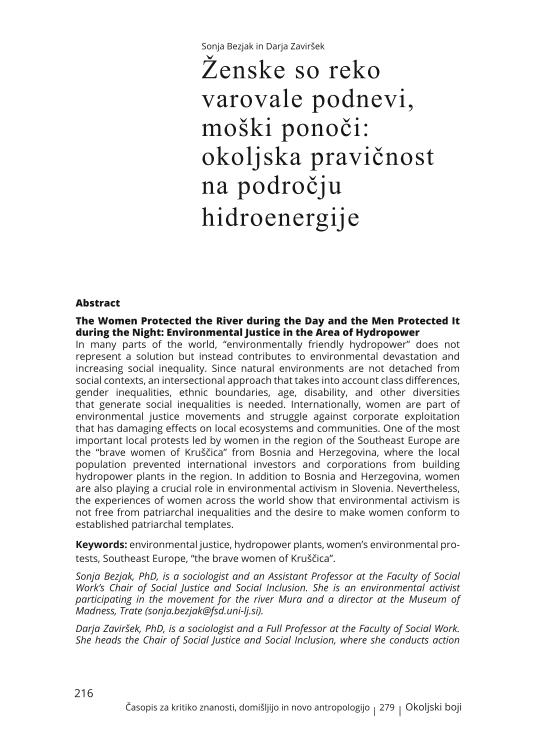In many parts of the world, “environmentally friendly hydropower” does not represent a solution but instead contributes to environmental devastation and increasing social inequality. Since natural environments are not detached from social contexts, an intersectional approach that takes into account class differences, gender inequalities, ethnic boundaries, age, disability, and other diversities that generate social inequalities is needed. Internationally, women are part of environmental justice movements and struggle against corporate exploitation that has damaging effects on local ecosystems and communities. One of the most important local protests led by women in the region of the Southeast Europe are the “brave women of Kruščica” from Bosnia and Herzegovina, where the local population prevented international investors and corporations from building hydropower plants in the region. In addition to Bosnia and Herzegovina, women are also playing a crucial role in environmental activism in Slovenia. Nevertheless, the experiences of women across the world show that environmental activism is not free from patriarchal inequalities and the desire to make women conform to established patriarchal templates.




